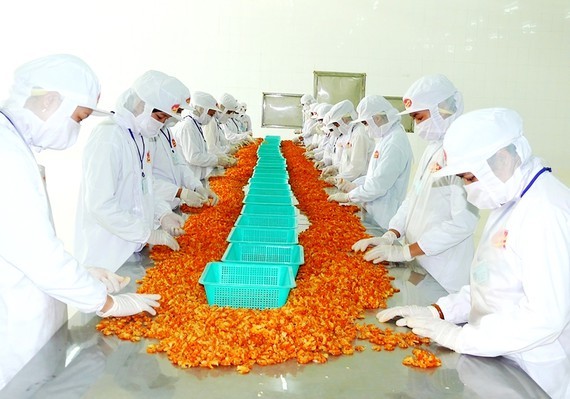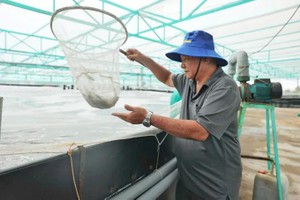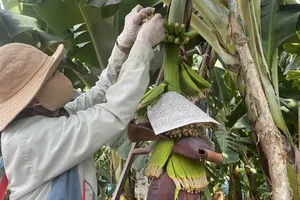
Statistics from the General Department of Vietnam Customs showed that total trade in goods between the two nations topped US$657.35 million in January, a year-on-year hike of 78.57 percent. The Ministry of Industry and Trade described it as an impressive growth, particularly in the context of COVID-19.
Notably, Vietnam’s shipment to the European country hit $598.07 million, or 84.61 percent higher than the same time last year, and 56.51 percent higher than December 2020. Exports of agricultural products maintained stable growth in the month, with export revenue of seafood surging 18.1 percent to $19.72 million, and fruits and vegetables rising 148.6 percent to $1.04 million.
Under the UK trade deal, tariff levied on Vietnamese shrimp materials is reduced from 10-20 percent to zero percent, while more than 94 percent of 547 tariff lines on Vietnamese fruits and vegetables will be cut to zero percent.
Experts said a wide range of Vietnamese fruits like lychee, longan, dragon fruit, pineapple and rambutan will hold more advantages to access the UK market over those from Brazil, Thailand and Malaysia who have not clinched a FTA with the European country.
Vietnam also saw strong increase in its shipments of telephone and parts (up 371.6 percent to $252.59 million; machines, equipment and parts (up 109.9 percent to $74.58 million); computers and parts (up 91 percent to $31.82 million), among others.
Meanwhile, Vietnam spent $59.297 million on imports from the UK, up 34.3 percent year-on-year.
Last year, total trade value between the two nations reached $5.64 billion, with Vietnam posting positive trade balance of $4.27 billion. The UK continued to be the 3rd largest trade partner of Vietnam in Europe, just following Germany and the Netherlands.
As of December 2020, the UK registered $3.84 billion in 411 projects in Vietnam, becoming the 15th biggest investor among 139 countries and territories landing investment in the nation. Most of the UK’s projects were in finance, banking, oil and renewable energy.
The Ministry of Industry and Trade affirmed that the trade pact will boost trade growth between the two nations in the coming time thanks to its commitment to erasing 65 percent of the total tariffs immediately after the pact took effect, and 99 percent of the tariffs in six or seven years.
























